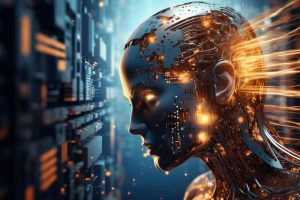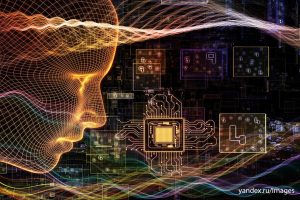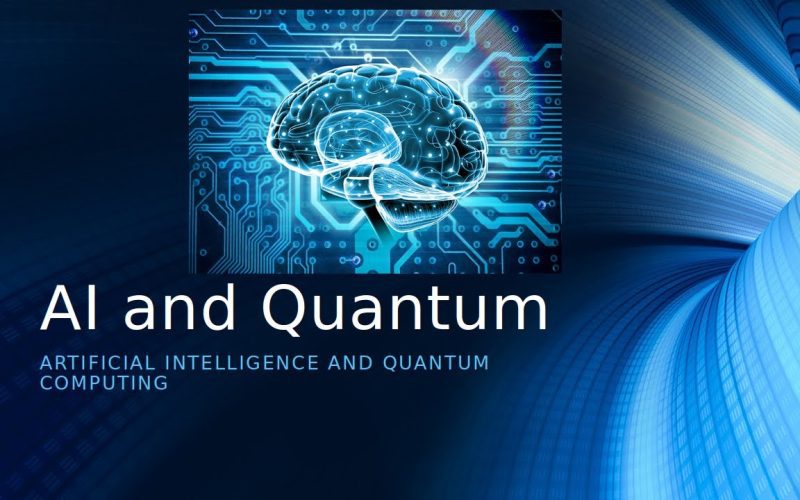The intersection of Quantum Computing and Artificial Intelligence

The intersection of Quantum Computing and AI is where the magic happens. Quantum Computing AI enhances machine learning efficiency by utilizing quantum bits, or qubits, which can represent multiple states simultaneously. This capability allows quantum computers to process vast amounts of data at speeds unattainable by classical computers, thereby significantly improving the efficiency of machine learning algorithms.
Furthermore, Quantum Computing AI accelerates complex data analysis processes by leveraging quantum parallelism, which enables the simultaneous exploration of multiple solutions to a problem. This results in faster and more accurate data analysis, making it possible to tackle problems that were previously considered intractable.
How Quantum Computing enhances machine learning algorithms
Quantum Computing accelerates AI model training speeds by utilizing quantum algorithms that can perform computations exponentially faster than classical algorithms. This speed-up is particularly beneficial for training large-scale machine learning models, which often require significant computational resources and time. By reducing the training time, Quantum Computing allows AI researchers and practitioners to iterate and improve their models more rapidly.
Additionally, Quantum Computing enhances AI algorithms’ accuracy and efficiency by providing more precise solutions to optimization problems, which are at the core of many machine learning tasks. The increased accuracy and efficiency lead to better-performing AI models that can make more reliable predictions and decisions.
Quantum Computing’s role in big data analysis
In the realm of big data, Quantum Computing AI enhances big data pattern recognition by efficiently processing and analyzing massive datasets. Traditional computing methods often struggle with the sheer volume and complexity of big data.
But quantum computers can handle these challenges with ease. By identifying patterns and correlations within large datasets more effectively, Quantum Computing AI can uncover valuable insights that were previously hidden. Moreover, Quantum Computing AI accelerates data processing for complex analyses, enabling businesses and researchers to derive actionable intelligence from their data more quickly.
Improving neural networks with Quantum Computing
Quantum Computing enhances AI neural network efficiency by optimizing the training and inference processes. Neural networks, which are a fundamental component of many AI systems, require substantial computational resources to train and deploy. Quantum Computing can significantly reduce the time and resources needed for these tasks, leading to more efficient neural networks.
AI benefits from Quantum Computing’s superior processing capabilities, which allow for the exploration of more complex neural network architectures and the development of more sophisticated AI models. This enhancement ultimately leads to AI systems that are more capable and effective in performing a wide range of tasks.
Quantum Computing applications in natural language processing

Natural Language Processing (NLP) is another area where Quantum Computing AI shows great promise. Quantum Computing AI accelerates NLP model training by leveraging quantum algorithms that can handle the vast amounts of text data required for training NLP models. This acceleration enables the development of more advanced NLP systems in a shorter time frame.
Additionally, Quantum Computing AI enhances language understanding efficiency by providing more accurate and nuanced interpretations of text data. This improved understanding is essential for applications such as machine translation, sentiment analysis, and conversational AI, where the ability to comprehend and generate human language is critical.
Challenges in integrating Quantum Computing with AI
Despite its potential, integrating Quantum Computing with AI is not without challenges. Quantum Computing AI requires specialized hardware and software integration, as quantum computers operate fundamentally differently from classical computers.
Developing the necessary infrastructure and tools to support Quantum Computing AI is a complex and resource-intensive task. Furthermore, Quantum Computing AI faces data processing and algorithm optimization challenges, as existing AI algorithms need to be adapted to leverage quantum computing effectively.
Future prospects of Quantum-enhanced AI
The future prospects of Quantum-enhanced AI are incredibly promising. Quantum Computing AI accelerates machine learning model training, enabling the development of more advanced and capable AI systems. As quantum computing technology continues to evolve, we can expect even greater improvements in AI model training speeds and capabilities.
Additionally, Quantum Computing AI enhances data processing capabilities, allowing for more efficient and effective analysis of large and complex datasets. These advancements will open up new possibilities for AI applications across various domains, from healthcare and finance to transportation and beyond.
Case studies of Quantum Computing boosting AI
Several case studies demonstrate the potential of Quantum Computing in boosting AI capabilities. For instance, Quantum Computing AI accelerates machine learning model training in fields such as drug discovery, where rapid model training can significantly speed up the identification of potential drug candidates.
Another example is in financial modeling, where Quantum Computing AI enhances complex data analysis capabilities, enabling more accurate risk assessments and investment strategies. These case studies highlight the transformative impact of Quantum Computing on AI and underscore the importance of continued research and development in this area.
Conclusion and future directions
In conclusion, the synergy between Quantum Computing and AI accelerates technological advancements, pushing the boundaries of what is possible in computation and problem-solving. The integration of these two fields holds immense potential for revolutionizing various industries and addressing some of the most pressing challenges of our time.
Future research will continue to explore Quantum Computing AI applications, uncovering new ways to harness the power of quantum computing to enhance AI capabilities. As we move forward, the collaboration between quantum computing and AI will undoubtedly lead to groundbreaking innovations and a deeper understanding of the world around us.












